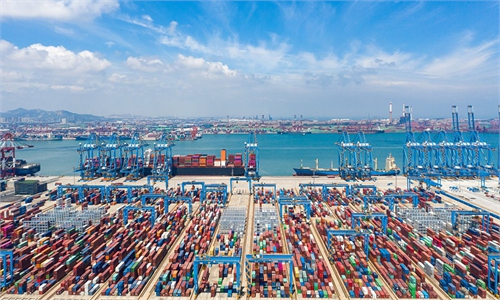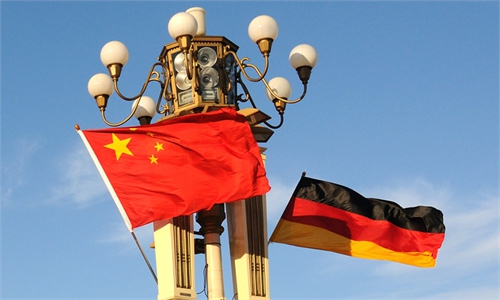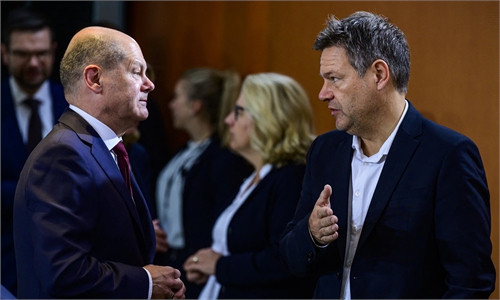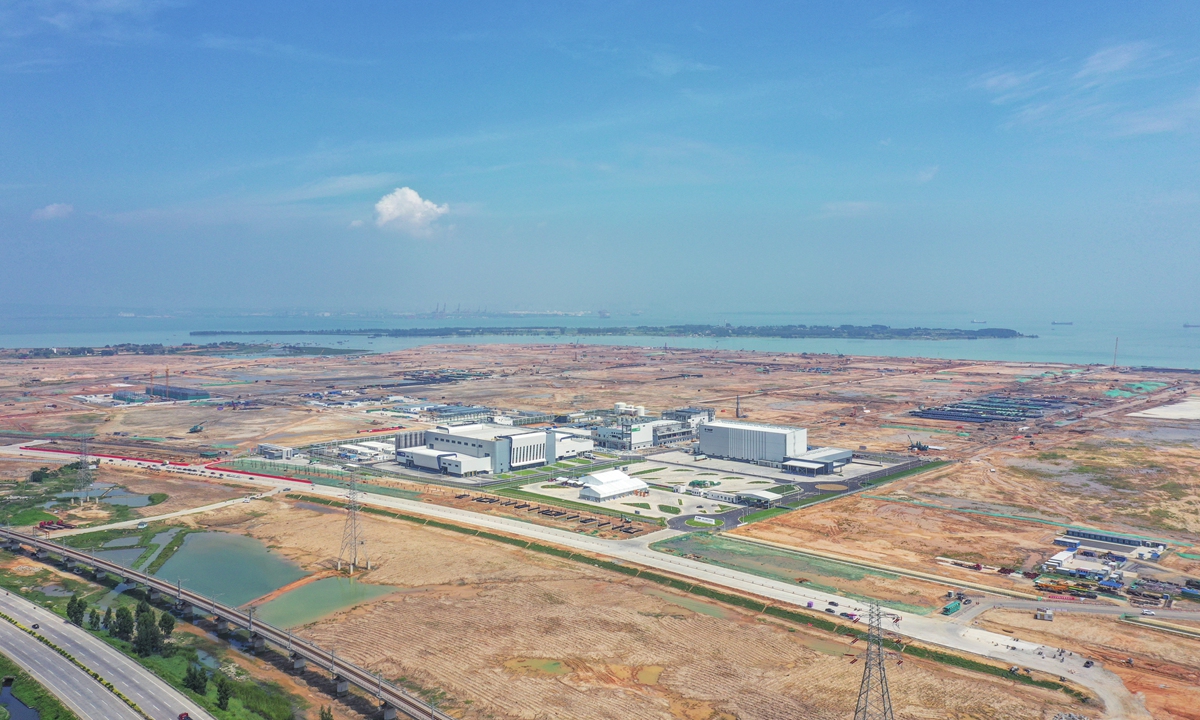
The photo taken on September 10, 2022 shows a view of BASF Zhanjiang Verbund site in Zhanjiang, south China's Guangdong Province. Photo: VCG
Editor's Note:
Decoupling Germany from China would serve only the interests of America and damage Germany's own industry severely, said Dr. Maximilian Krah (Krah), a member of the German Alternative für Deutschland (AfD) in the European Parliament. He said the anti-China forces in Germany represent no interests of Germany and urged German Chancellor Olaf Scholz to prioritize Germany's economic interests in his upcoming visit to China, in an interview with Global Times reporters Yu Jincui and YanYuzhu about China-Germany relations as well as European energy crisis and the Russia-Ukraine conflicts.
GT: German Chancellor Scholz is going to pay a visit to China on November 4 with a delegation of senior business leaders. In an interview with the German media, Scholz said that decoupling from China would be the wrong path. But some radical forces accused Scholz of bending over to China and even intimidated German companies whose executives will visit China with Chancellor Scholz. How do you view this? What's your expectation for Scholz's China visit?
Krah: I hope Scholz as German Chancellor could prioritize Germany's economic interests, and further promote the Comprehensive Agreement on Investment to reduce inflation. The deepening of economic, technological and trade cooperation between China and Germany is indispensable for Germany's development. The anti-China forces in Germany do not represent the interests of Germany.
China is our largest trading partner, China is a major investor and we do not have any strategic conflicts of interest with China. Decoupling from China would serve only the interests of America and damage our own industry severely. This is not about democracy or human rights, it is about the future conflict between Washington and Beijing - a conflict I would like to remain absent from. We want to build up a multilateral relationship with all countries around the world to serve German state interests.
GT: Winter is coming with rising prices and utility costs and Europe is scrambling for solutions to an energy crisis. Do you think energy shortages are or will be triggering a political and social crisis within Europe?
Krah: I do not think that, I see that. It is already happening. Look at the election results in the German state of Lower Saxony. In all the industrialized areas, people with working or lower middle class background have voted in large numbers for the AfD - the only party that is openly addressing the energy crisis. I am confident that we will see the same dynamics everywhere in Europe and it will not stop with an energy crisis - we will have a complete deindustrialization crisis following.
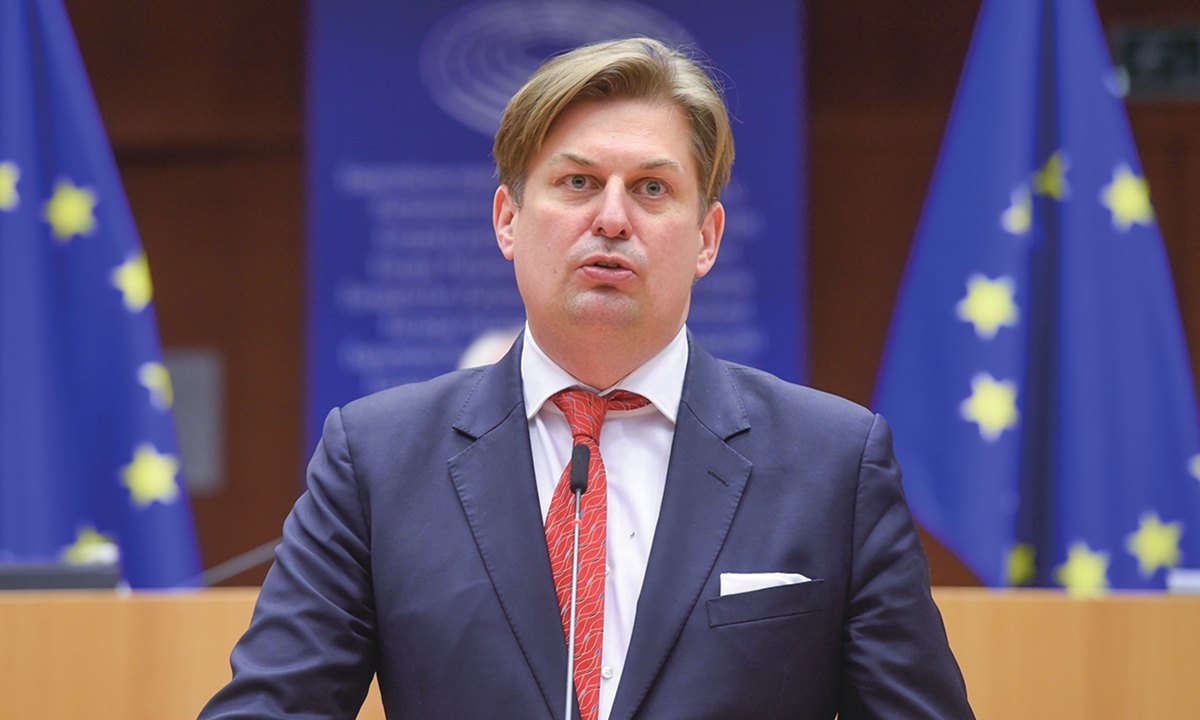
Maximilian Krah Photo: Courtesy of Krah
GT: How has the energy crisis influenced Germany, especially the political situation in the country?Krah: Germans realize that energy - both for heating and for electricity - has to come from somewhere. Getting out of nuclear energy, getting rid of coal-powered plants because of climate change and gas turbines and then suddenly, Russian gas is bad too - where will it end? Exactly, nobody will have a reliable source of electricity any more. Renewables are a great thing but we have not been able to come up with a sufficiently effective battery technology to provide a developed society with a constant supply of electric energy, so we need nuclear power. My party has said this for years and the government's shift in this topic has proven us right. This was only possible because people are taking to the streets in the tens of thousands. I think we will have a far more right leaning electorate in the near future than before.
GT: Late in August, you mentioned that the EU must urge countries that support banning travel visas for Russians to act rationally, considering the state of the Russia-Ukraine conflict and its consequences. Do you think the current crisis can unite Europe to make the right choices? What is the way out of the energy crisis in Europe?
Krah: We condemn Russia for this war officially, and any other acts of war. We insist on solving problems through diplomacy and negotiation. War was not the right answer to the security challenges that the expansion of NATO brought with it for the Kremlin. But now it is time to look forward. Europe needs to unite in the face of the multipolar world and that means being open for constructive dialogue with everyone. The Russian-Ukrainian war has put Europeans at the mercy of the US. This is unbearable. On the other hand, we need to address the security concerns of our Eastern European neighbors.
If we manage to produce a European approach to Russia and our security in this theater without American interference, then we will have made the right steps. The same applies to the current energy crisis. We have a crisis precisely because we follow American strategies. Russia is our most reliable and cost-efficient supplier of oil and gas. It would be foolish to plan otherwise. Russia's gas is not our problem; it is our lack of strength and of a cohesive and complete economic, political and military vision for the future.
GT: As the war between Russia and Ukraine continues, the economic impact is becoming apparent. Do you think there is a change in the public perception of this war? Will the change in public attitudes influence the policies of the EU and the member countries toward Russia and Ukraine?
Krah: Yes, war is expensive and wartimes are always times of crisis and change. We will see a change in public perception when people are being confronted with the harsh realities instead of soft words.
GT: Do you think more and more Europeans are wakening up to the role Washington plays in Europe's crisis?
Krah: Yes, I think many Europeans realize the dangerous situation we are putting ourselves in, if we continue to follow America's leadership.
We need to come up with a moral approach. Fighting America's wars is not in our interests and not in the interests of the Ukrainians. Our vision is a vision of peaceful collaboration between various larger players in the world, including Russia, Brazil, China and of course the EU. This vision, I hope, will in the next months become more attractive than a new cold war under the leadership of the US.
